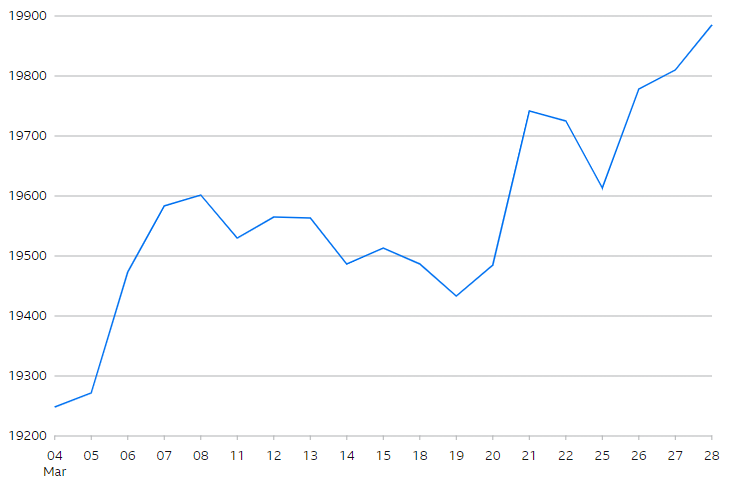
This is part of our monthly pension update series. Catch up on last month’s summary here: What happened to pensions in February 2024?
The past few years have been challenging for the UK economy, with the COVID-19 pandemic and energy price spike still casting a shadow. However, this year’s Spring Statement painted a more optimistic picture for economic growth and recovery. The Chancellor, Jeremy Hunt, highlighted the government’s progress towards their key priorities:
- Keeping inflation down - after peaking at 11.1% in October 2022, inflation fell to 3.4% in the 12 months to February 2024.
- Growing the economy - the economy decreased for two consecutive quarters in the second half of 2023 leading to a ‘technical recession’, but overall consumer confidence remains strong.
- Get debt falling - while debt has grown from 85.1% of GDP in December 2022 to 88.3% in November 2023, it’s expected to fall in the next year based on the current government’s spending plans.
Keep reading to find out how markets have performed this month and what the Spring Statement could mean for your pension savings.
What happened to stock markets?
In the UK, the FTSE 250 Index rose by over 4% in March. This brings the year-to-date performance close to +1%.
 Source: BBC Market Data
Source: BBC Market Data
In Europe (excluding the UK), the EuroStoxx 50 Index rose by over 4% in March. This brings the year-to-date performance close to +12%.
 Source: BBC Market Data
Source: BBC Market Data
In North America, the S&P 500 Index rose by over 3% in March. This brings the year-to-date performance close to +10%.
 Source: BBC Market Data
Source: BBC Market Data
In Japan, the Nikkei 225 Index rose by over 3% in March. This brings the year-to-date performance close to +21%.
 Source: BBC Market Data
Source: BBC Market Data
In the Asia Pacific (excluding Japan), the Hang Seng Index remained flat in March. This brings the year-to-date performance close to -3%.
 Source: BBC Market Data
Source: BBC Market Data
Overall, major global markets, especially in the US and UK, have performed well over the past month and quarter, likely leading to upticks in your pension balance.
What does the 2024 Spring Statement mean for your pension?
The combination of an ongoing cost-of-living crisis and high taxation has put a squeeze on households up and down the country. With a UK general election due later this year, all eyes were on the government’s Spring Statement to discover what financial relief there may be. On 6 March, the Chancellor made various policy announcements - including a much welcomed reduction in National Insurance.
Here’s the key Spring Statement 2024 points at a glance:
- National Insurance cut from 10% to 8%;
- Child Benefit earnings threshold raised;
- further £5,000 ISA allowance for ‘UK ISA’;
- top capital gains tax rate on property reduced to 24%;
- furnished holiday lettings tax breaks scrapped;
- VAT threshold rising from £85,000 to £90,000; and
- non-UK domiciled individuals (“non-doms”) status abolished.
Depending on the impact of these changes on your household finances, you may want to consider whether you have additional income to increase your pension contributions and grow your pension pot for the long term.
Read more about these changes in our blog, How the 2024 Spring Statement impacts your pension.
This is part of our monthly pension update series. Check out the next month’s summary here: What happened to pensions in April 2024?
Have a question? Get in touch!
Do you want to know more about your pension plan with PensionBee? You can check out our Plans page to learn how your money is invested in different assets and locations, or log in to your BeeHive to see your specific plan. You can always send comments and questions to our team via engagement@pensionbee.com.
Risk warning
As always with investments, your capital is at risk. The value of your investment can go down as well as up, and you may get back less than you invest. This information should not be regarded as financial advice.




